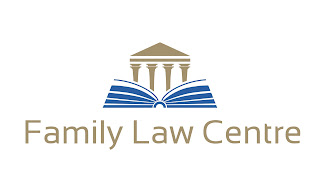Hugh Condron - www.familylawcentre.ie - Gender Recognition Act 2015 in a nutshell
Key points from the Gender Recognition
Act, 2015[1]
The
Act makes provision to recognise change of gender and to provide for Gender
Recognition Certificates. In doing so, the Act amends the Irish Nationality
& Citizenship Act 1956, the Civil Registration Act 2004, the Passports Act
2008 and the Adoption Act 2010.
General
Points
1. There
will be no charge for making an application for a gender recognition
certificate.
2. If
an application is refused, reason(s) will be given why and an appeal may be
made within 90 days. If no appeal is made, after 90 days the decision to refuse
is final (See Section
17
for details).
3. If
a person is over 18 there is no requirement to produce any medical or
psychiatric reports, this requirement relates to those from 16 – 18 years of
age.
Eligibility
to apply for a Gender Recognition Certificate i
1. Must
be 18 or over.
2. In
certain cases where a child is 16 but not 18 an application for age exemption will
only be considered by way of a Circuit Family Court Order (See Section
12
& Section
37
for details).
3. Must
hold a valid Birth or Adoption Certificate from this State or one recognised by
the State if born / adopted outside the State.
4. Applicant
cannot be married or a civil partner.
5. Must
comply with all the requirements on application.
Requirements
to apply for a Gender Recognition Certificate i
1. Name,
address and PPS number.
2. The
first and last name by which the applicant wishes to be known.
3. Proof
of identity.
4. Proof
of birth.
5. Proof
of residency in the State if born outside the State.
6. Declaration
of not being married or a civil partner.
7. Declaration
of a settled and solemn intention to live in the preferred gender for life.
8. Fully
understands the consequences of the application.
9. The
Application is made of their free will.
Recognition
of out of State Gender Recognition Certificate i
1. Provide
the items listed in 1-7 above.
2. The
out of State Gender Recognition Certificate translated and authenticated.
3. Show
that the process to obtain a Gender Recognition Certificate out of State is at
least equivalent to that in this State.
A
Gender Recognition Certificate will include i
1. The
date of issue. (Certificates
are not retrospective and apply only from the date of issue)
2. New
name.
3. Date
of Birth.
4. Newly
recognised gender.
How
to apply for a new Birth certificate
If a birth is registered in the State, apply to the
General Register Office to be entered in the register of Gender Recognition.
Details will already have been sent to the General Registrar (See GRO
Application form).
If you are registered in the Register of Intercountry
Adoptions, apply in writing to the Adoption Authority of Ireland to be entered
in the Register of Gender Recognition of Intercountry Adoptions (See AAI
Application Form).
If you are registered in the Foreign Births Register or
a foreign births entry book, apply to the Department of Foreign Affairs to be
entered in the Register of Gender Recognition of Foreign Births (See DFA
Information).
When registration is complete, an application for a
certified copy of the entry in the register, for the appropriate fee, can be
made from the relevant authority.
How
to apply for a new passport
An application may be made for a new passport to
reflect the newly recognised gender and name. The application must include the
Original Gender Recognition Certificate and current Irish Passport. If a first
time application is being made the new Birth Certificate would have to be
provided in lieu of an old passport.
Original documents will be returned. The Passport
Service may request further documents if deemed necessary.
============================================================
Other
important points to note
A person is not required to produce a Gender Recognition
Certificate as proof of gender or identity for any purpose except as required
by law.
A Gender Recognition Certificate does not affect that
person’s rights, liabilities or consequences of actions in their original
gender prior to the Gender Recognition Certificate being issued.
There is no affect on the status of the person as a
parent of a child born prior to the Gender Recognition Certificate being
issued.
A Gender recognition Certificate will not affect the
disposal or devolution of property under a will (Inc. a codicil) or other
instrument. A person may apply to the High Court for relief on the grounds of
being adversely affected by the different disposition or devolution of
property.
The Minister may, with good cause or on application revoke
a Gender Recognition Certificate (See Section
14 & 15 for details). Clerical errors on
certificates need to be notified to the Minister (See Section
16
for details).
There are penalties of a Class C fine or 6 months
imprisonment or both for a person who knowingly or recklessly provides information
to the minister that is false or misleading, or does not surrender a Gender
Recognition Certificate when required (See
Section 36).




Comments
Post a Comment